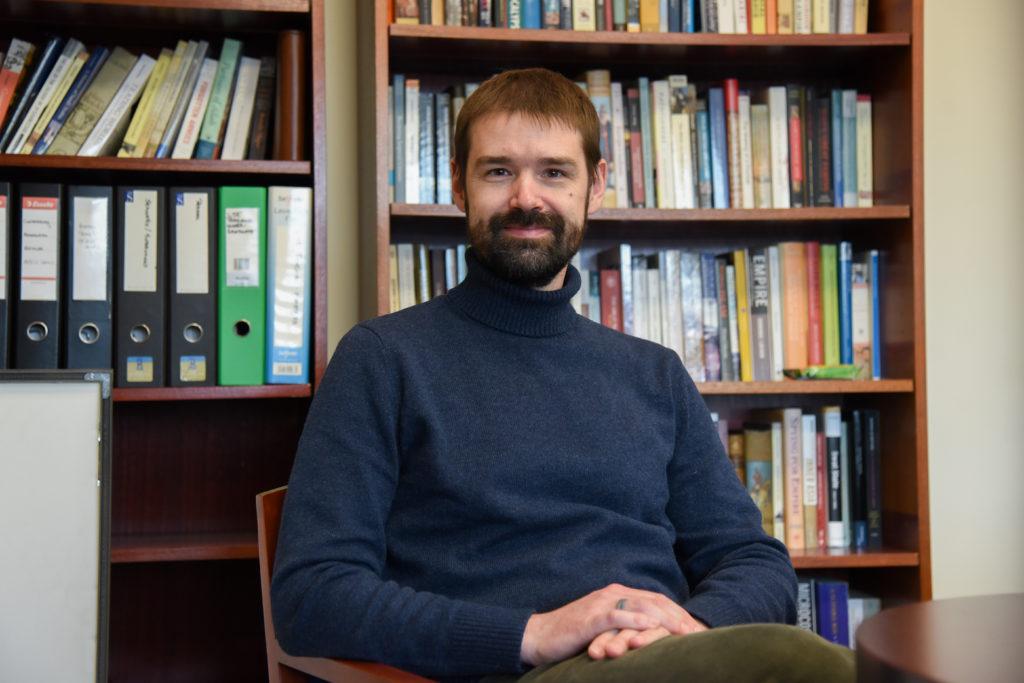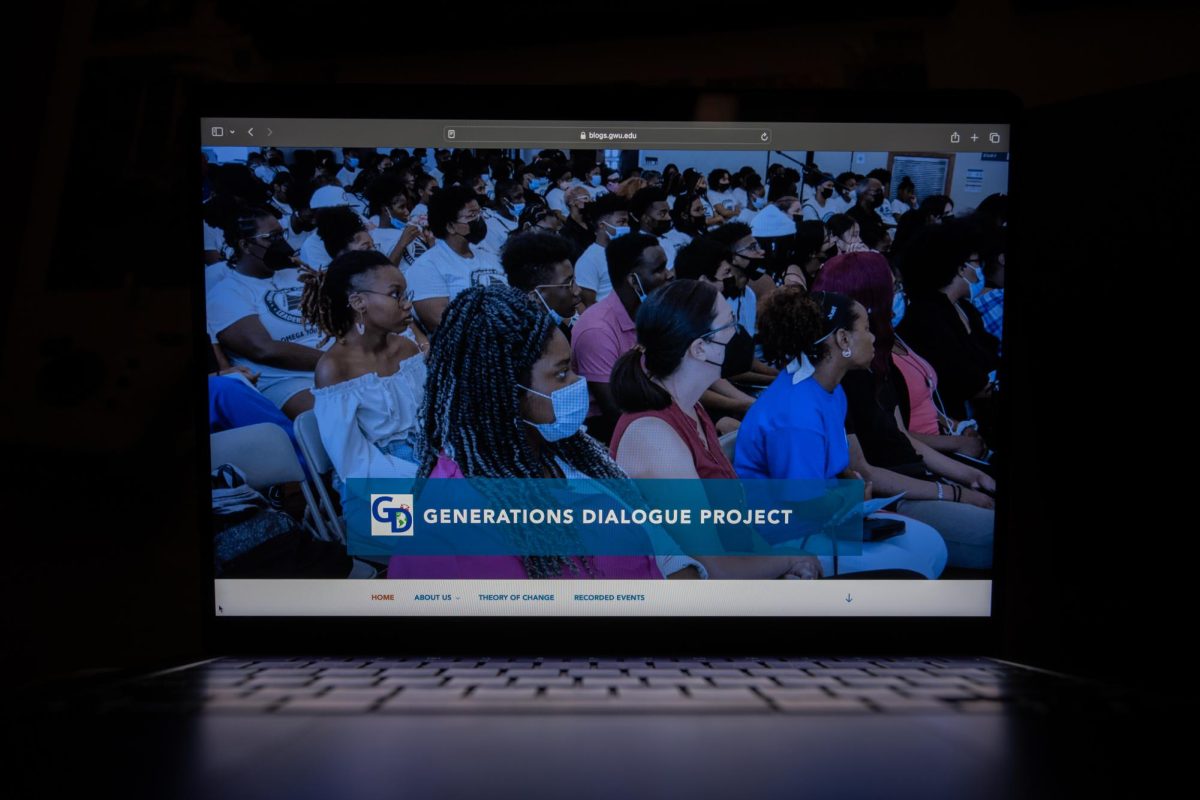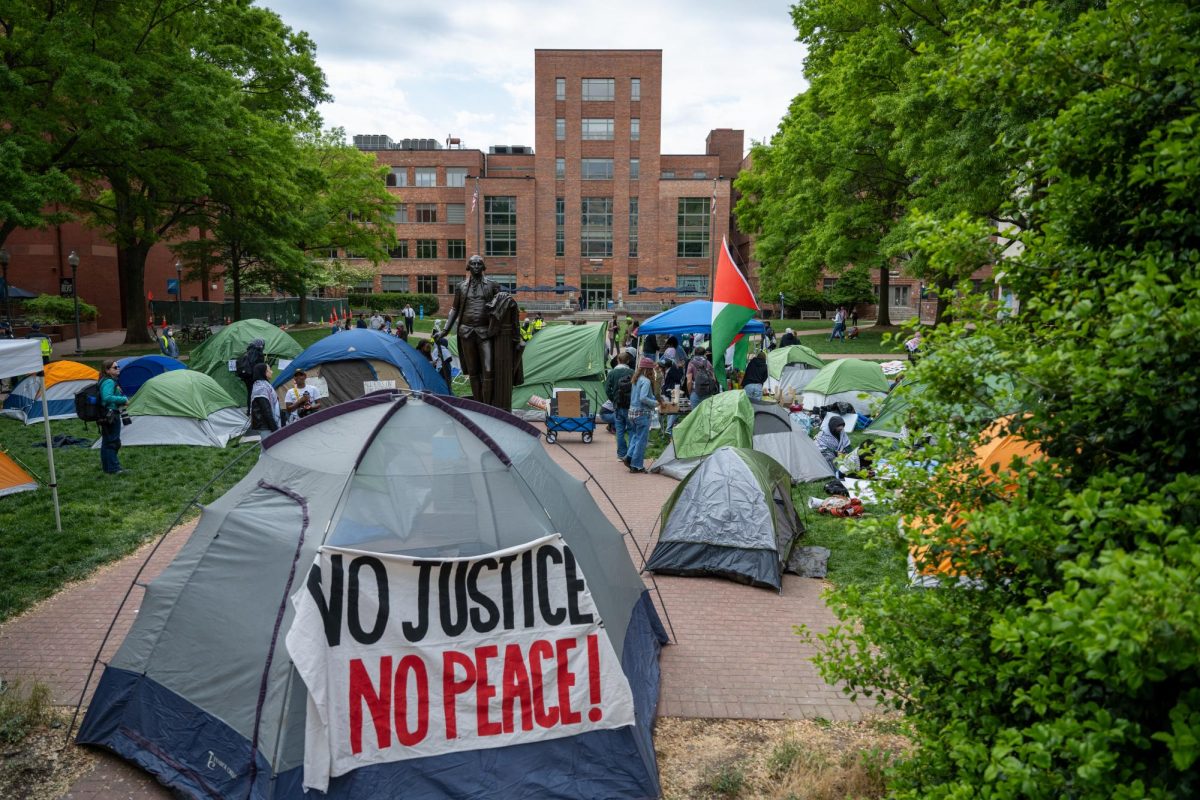The Sigur Center for Asian Studies launched a lecture series on Asian political developments last week with an event on U.S.-Iran relations in the aftermath of an Iranian general’s assassination.
The series will focus on original policy-related scholarship on current events in the Asian-Pacific region, and each lecture will feature experts exploring recent developments in Asia and providing insight on their potential impacts on the rest of the continent. Staff said the series is intended for people whose interests may not necessarily lie within Asia to broaden their understanding of the world’s most populous continent.
Helen Jiang, the program coordinator at the Sigur Center, said the series highlights the Sigur Center’s mission to research Asian affairs and teach it to a broad audience.
“The Sigur Center is very privileged to be the largest Asian studies center in the D.C. area, and I think with that status, it’s really critical for our reputation and also for our depth and breadth that we do have something that’s so policy-relevant, timely, innovative and advancing original scholarship,” she said.
The first lecture, on U.S.-Iran relations, featured Prashanth Parameswaran, a scholar affiliated with an international affairs magazine focused on the Asia-Pacific region and a research center on international affairs, according to the Sigur Center’s website. Parameswaran discussed the implications of the U.S.’s killing of Qassem Soleimani, a high-profile commander in Iran’s Revolutionary Guard, for key regional countries and potential future developments in the region.
Earlier this month, American military forces carried out an airstrike at Baghdad International Airport, killing Soleimani. Iran responded with missile strikes on two American military bases in Iraq, injuring 11.
February’s installment in the lecture series will focus on the recent Taiwanese election and developments from incumbent Tsai Ing-wen’s reelection since then.
Jiang said lectures in the series will be held monthly, and staff members currently have a short list of potential lectures for March’s event, though they will continue to monitor emerging issues in the region to stay up-to-date. She added that Sigur Center members are trying to “feel out” what students, policymakers and scholars in the field are interested in discussing for future lectures in the series.
She said the members are marketing the series through a variety of methods, like live-tweeting the events and accepting audience questions over Twitter. She added that the center’s members collaborated with partners like the School of Media and Public Affairs’ Institute for Public Diplomacy and Global Communications for the first lecture and are reaching out to other GW programs for co-sponsors and speakers.
“We’re always on the hunt for new co-sponsors and we’re really happy to engage with seasoned partners,” she said.
Jiang said Benjamin Hopkins, the Sigur Center’s director, began planning the lecture series this past summer. She said the leaders want to ensure that the series covered current “hot topics” while not repeating scholarship already discussed in similar forums elsewhere.
“That’s the innovative and original part of the lecture series,” she said.
Jiang said she, Hopkins and Sigur Center associate director Deepa Ollapally met during the summer to decide the parameters of the series. She said the series fits with University President Thomas LeBlanc’s commitment to advancing research at GW.
Improving the University’s research endeavors has been one of LeBlanc’s main priorities since becoming president. In fall 2018, officials launched the largest-ever faculty-led research review, and LeBlanc selected “high-impact research” as one of four pillars to guide the next strategic plan earlier this academic year.
Jiang said scholars and students should attend the series to better understand Asian issues and how those issues can affect their own country.
“People seem to forget that Asia is a huge continent, enormous population, economy is really taking off – it’s about to overtake the West,” Jiang said. “This is a huge region that does need to have a diverse foundation – especially for Americans or at least international students – in the United States.”
Hopkins, the center’s director and an associate professor of history and international affairs, said the series will include a “wide array of perspectives” on issues like the ongoing war in Afghanistan.
“With a history of hosting upwards of 60 events annually, the Sigur Center is well-positioned as the intellectual hub of Asia-focused scholarship and public outreach in the nation’s capital,” he said in a release.
Ollapally, the center’s associate director, did not return multiple requests for comment.








